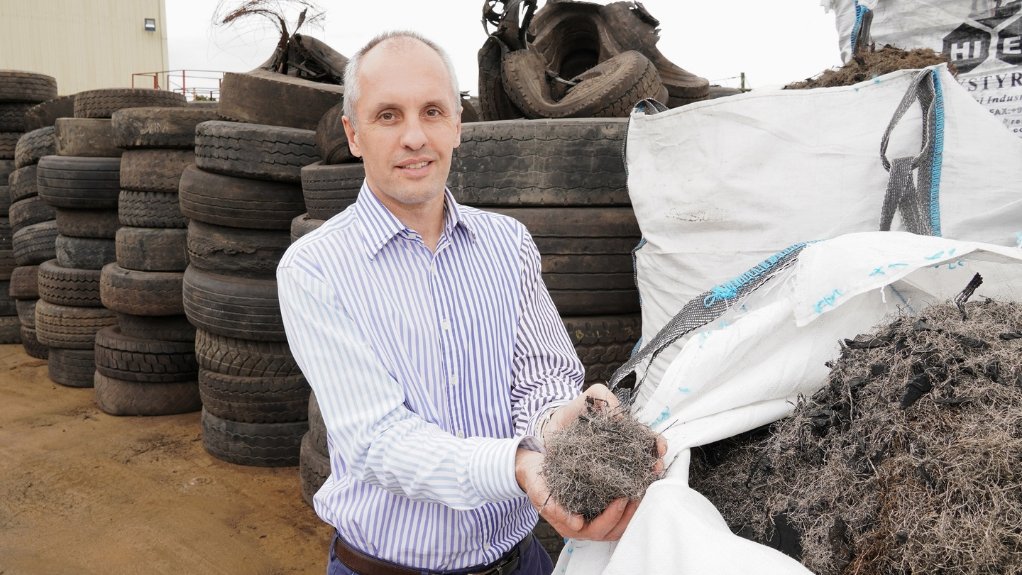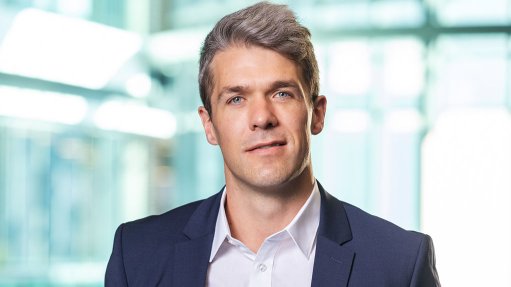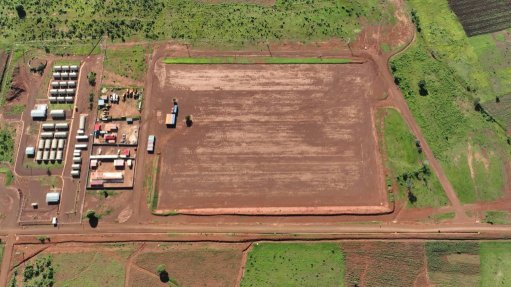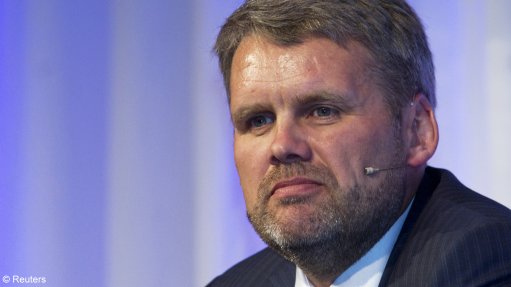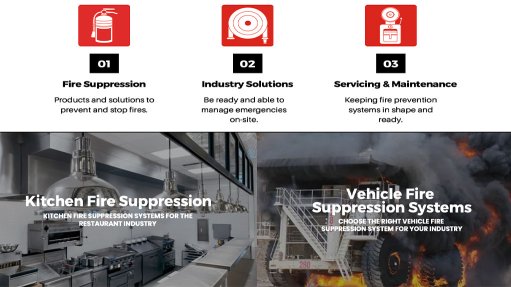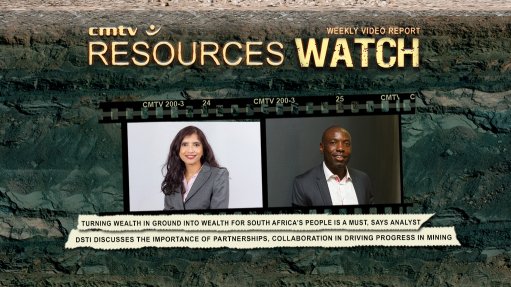Mathe Group saves thousands of tons of CO2 by recycling 1m tyres
The recycling of one-million waste radial truck tyres in KwaZulu-Natal has saved between 45 500 t and 71 500 t of CO₂ emissions since 2017 – a significant achievement for South Africa’s largest tyre processor Mathe Group.
The company is transforming a fraction of the country’s growing hazardous mountain of waste tyres into reusable products.
Mathe Group CEO Dr Mehran Zarrebini says processing its millionth tyre brought the total amount of rubber crumb produced for re-use in key industrial and construction applications to around 38 500 t.
Based on an infill of 100 t of rubber crumb per full-size artificial football field, this equates to 385 full-size football fields or 700 full-size hockey fields. Alternatively, the amount of rubber crumb produced would have provided the asphalt and seal needed to pave at least 8 000 km of roads.
This is despite major disruptions in South Africa’s rubber recycling industry, with many other tyre recyclers skidding to a halt. Waste tyres have become a growing environmental hazard and a lost economic opportunity. Currently, more waste tyres are generated than can be managed and processed. As a result, South Africa’s discarded tyre count far exceeds its population, says Mathe Group.
When former Forestry, Fisheries and the Environment Minister Barbara Creecy slipped through a last minute Industry Tyre Waste Management Plan prior to the 2024 elections, her advisers admitted that the durability of tyres makes landfilling problematic.
Buried tyres tend to re-surface, compact poorly and do not degrade easily. The high calorific value of waste tyres poses a significant fire risk, while burning tyres releases noxious pollutants including carbon monoxide, sulphur oxides, nitrogen, volatile organic compounds, polynuclear aromatic hydrocarbons, benzene, heavy metals and more.
Government admitted that data was limited and probably inaccurate but estimated that an average of 13-million tyres with an estimated total weight of 300 000 t are sold in South Africa yearly. Applying an 18% to 20% reduction in weight between new and waste tyres, they estimated that 240 000 to 250 000 t of waste tyres are generated yearly with the majority being returned to dealerships and stockpiled awaiting recycling.
Updated industry data suggest that 206 272 t of waste tyres were generated in 2021 alone. Yet less than 20% of used tyres were recycled during 2020.
Mathe Group currently recycles about 1 000 radial truck tyres a day to produce 45 t of rubber crumb. Seventy per cent of each 55 kg truck tyre becomes rubber crumb and 30% is waste steel which is exported.
“Recycling one-million radial truck tyres, each weighing 65 kg, into crumb rubber can lead to substantial carbon emission savings. A comprehensive life cycle assessment indicates that recycling vehicle tyres into crumb rubber can achieve a 71.91% reduction in CO₂ emissions compared with landfill and incineration methods,” he says.
Citing Genan, a leading Danish tyre recycler, Zarrebini says that each tonne of tyres recycled equals 0.7 to 1.1 t of CO₂ emission savings when compared with incineration: “The carbon emission savings from recycling one-million radial truck tyres, each weighing 65 kg, is about 58 500 t of CO₂, based on an average saving of 0.9 t CO₂ per tonne of tyres recycled. For our specific milestone, we can highlight a range of 45 500 to 71 500 t CO₂ to showcase the minimum and maximum impact of our efforts.”
Climbing Rubber Mountain
Mathe Group’s repertoire of products now includes paving blocks and flooring for agricultural use, ballistics products, gym mats, rubber pavers and the infill for sports fields. Various sizes of rubber crumb are also key ingredients in bitumen for road resurfacing, non-slip paints, moulding of automotive parts, the retreading of tyres and the production of brake linings.
Many challenges have stood in the way of achieving Mathe’s millionth tyre milestone far sooner, including the Covid-19 pandemic, which shut down the plant for 18 months, loadshedding, water shortages and ongoing legal battles and allegations of corruption surrounding government’s Industry Waste Tyre Management Plan.
Mathe Group is currently awaiting the renewal and expansion of its tyre quota from the Waste Bureau which will enable the company to significantly expand output and continue to develop new products.
Article Enquiry
Email Article
Save Article
Feedback
To advertise email advertising@creamermedia.co.za or click here
Announcements
What's On
Subscribe to improve your user experience...
Option 1 (equivalent of R125 a month):
Receive a weekly copy of Creamer Media's Engineering News & Mining Weekly magazine
(print copy for those in South Africa and e-magazine for those outside of South Africa)
Receive daily email newsletters
Access to full search results
Access archive of magazine back copies
Access to Projects in Progress
Access to ONE Research Report of your choice in PDF format
Option 2 (equivalent of R375 a month):
All benefits from Option 1
PLUS
Access to Creamer Media's Research Channel Africa for ALL Research Reports, in PDF format, on various industrial and mining sectors
including Electricity; Water; Energy Transition; Hydrogen; Roads, Rail and Ports; Coal; Gold; Platinum; Battery Metals; etc.
Already a subscriber?
Forgotten your password?
Receive weekly copy of Creamer Media's Engineering News & Mining Weekly magazine (print copy for those in South Africa and e-magazine for those outside of South Africa)
➕
Recieve daily email newsletters
➕
Access to full search results
➕
Access archive of magazine back copies
➕
Access to Projects in Progress
➕
Access to ONE Research Report of your choice in PDF format
RESEARCH CHANNEL AFRICA
R4500 (equivalent of R375 a month)
SUBSCRIBEAll benefits from Option 1
➕
Access to Creamer Media's Research Channel Africa for ALL Research Reports on various industrial and mining sectors, in PDF format, including on:
Electricity
➕
Water
➕
Energy Transition
➕
Hydrogen
➕
Roads, Rail and Ports
➕
Coal
➕
Gold
➕
Platinum
➕
Battery Metals
➕
etc.
Receive all benefits from Option 1 or Option 2 delivered to numerous people at your company
➕
Multiple User names and Passwords for simultaneous log-ins
➕
Intranet integration access to all in your organisation



